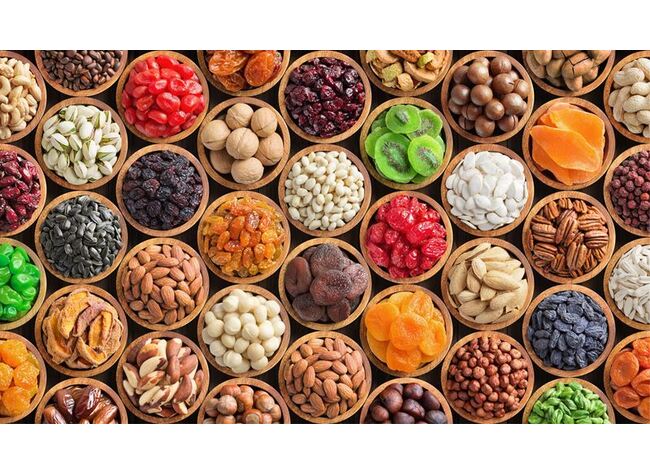Introduction
In today's swiftly evolving food sector, companies are looking for sustainable remedies to fulfill the growing need for top quality foodstuff while minimizing their environmental influence. Contract food manufacturing has emerged as a viable alternative for companies seeking to outsource their production requires while keeping control over product development and quality assurance. This post explores the concept of contract food manufacturing in Australia as well as its duty in advertising sustainability within the food industry.
The Surge of Contract Food Manufacturing in Australia
Understanding Contract Food Manufacturing
Contract food manufacturing is a calculated partnership in between a brand proprietor and also a contract maker, where food product contract manufacturing the latter generates goods on behalf of the previous. This arrangement allows brand owners to focus on marketing, product advancement, as well as circulation while leveraging the competence and resources of specialized contract manufacturers.
Benefits of Agreement Food Manufacturing
Cost Performance: Contract food manufacturing removes the demand for substantial capital expense in facilities, tools, and manpower. This cost-saving measure allows brand names to assign their resources towards other crucial areas of company growth. Scalability: As need for a specific product varies, contract producers can promptly readjust production levels to suit market demands. This adaptability guarantees that brand names can meet customer need without excess inventory or wastage. Expertise as well as Innovation: Contract manufacturers frequently have substantial expertise as well as experience in certain food classifications or processes. By collaborating with these specialists, brand names can tap into their creativity and harness cutting-edge options for item growth as well as improvement. Quality Guarantee: With strict quality control measures in position, agreement suppliers comply with industry criteria and also regulative demands. This dedication to quality makes sure that brands deliver risk-free and high-grade products to consumers consistently. Supply Chain Administration: Contract food manufacturing streamlines the supply chain by consolidating manufacturing, product packaging, labeling, and distribution under one roofing. This incorporated technique lessens logistical complexities as well as boosts total operational efficiency.The Environmental Impact of Contract Food Manufacturing
Reducing Carbon Footprint
Contract food manufacturing supplies chances to decrease the environmental influence of food production through numerous means:
Efficient Source Utilization: Agreement suppliers maximize resource consumption by carrying out energy-saving methods, reducing water use, as well as lowering waste generation. These sustainable actions contribute to a reduced carbon footprint across the entire production process. Locally Sourced Active ingredients: By sourcing ingredients from regional providers, contract manufacturers reduce transport ranges as well as linked discharges. This method sustains local economies while advertising sustainability within the supply chain. Eco-Friendly Packaging: Agreement food makers emphasize the use of eco-friendly packaging materials, such as biodegradable or recyclable alternatives. This dedication to lasting packaging lowers waste as well as cultivates responsible consumption.Embracing Eco-friendly Energy
Contract food producing facilities in Australia are progressively adopting renewable energy resources to power their procedures. Photovoltaic panel, wind turbines, and also various other clean energy solutions help reduce dependence on fossil fuels and add to a greener future for the industry.
Addressing Sustainability Challenges in Agreement Food Manufacturing
Waste Monitoring as well as Reusing Initiatives
Contract food suppliers prioritize waste management through extensive recycling programs as well as waste reduction strategies. By carrying out efficient waste partition systems, firms can draw away significant amounts of waste from land fills and also advertise a round economy.
Water Conservation Measures
Water scarcity is a global worry, as well as contract food suppliers play their component in resolving this obstacle. Firms buy water-saving technologies, such as advanced purification systems as well as water reuse efforts, to lessen their freshwater consumption.

Collaboration with Sustainable Suppliers
Contract food producers actively seek partnerships with distributors committed to lasting techniques. By focusing on eco mindful providers, these firms ensure that their entire supply chain straightens with sustainability goals.
FAQs
What is contract food manufacturing? Contract food manufacturing refers to the outsourcing of food manufacturing to specialized producers who create items in behalf of brand name owners.
.jpg?width=1311&height=875&name=Untitled%20design%20(32).jpg)

How can contract food manufacturing benefit companies? Contract food manufacturing uses price performance, scalability, know-how, as well as quality assurance to brands looking to concentrate on marketing and also distribution.
How does contract food manufacturing advertise sustainability? By maximizing source application, welcoming renewable resource, as well as carrying out waste monitoring and reusing initiatives, contract food manufacturing decreases its ecological impact.
What are some lasting product packaging options in contract food manufacturing? Eco-friendly product packaging materials such as biodegradable or recyclable options are commonly used in contract food manufacturing to reduce waste.
How do agreement food suppliers save water? Agreement food producers buy water-saving technologies and also implement water reuse campaigns to minimize their freshwater consumption.
What function does collaboration with sustainable suppliers play in contract food manufacturing? By partnering with ecologically aware distributors, agreement food manufacturers guarantee that their whole supply chain aligns with sustainability goals.
Conclusion
Contract food production presents a sustainable remedy for businesses seeking to satisfy the expanding need for high quality foodstuff while minimizing their ecological influence. By leveraging the knowledge of specialized makers as well as adopting environmentally friendly techniques, brands can contribute to a greener future for the Australian food industry. Accepting sustainability not only profits the setting but also improves brand name track record and customer count on a progressively aware market.